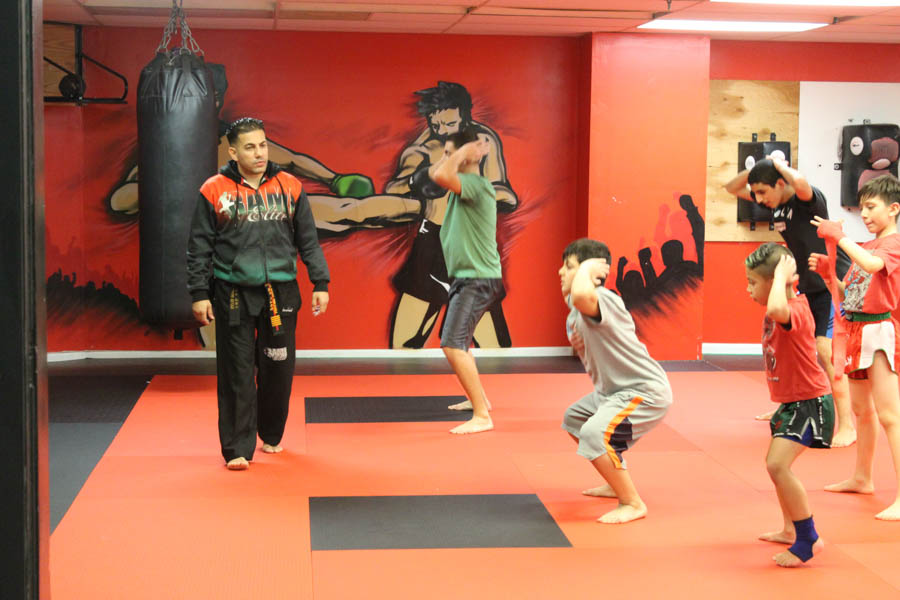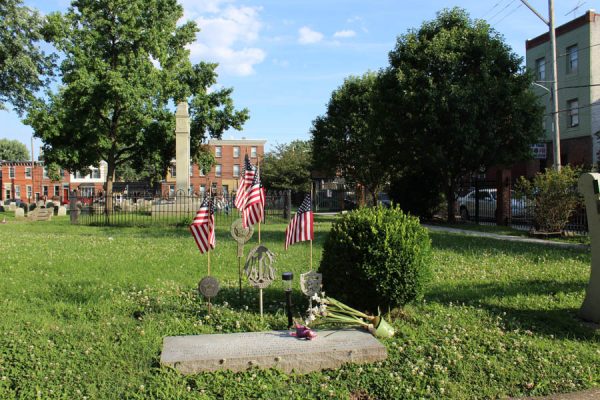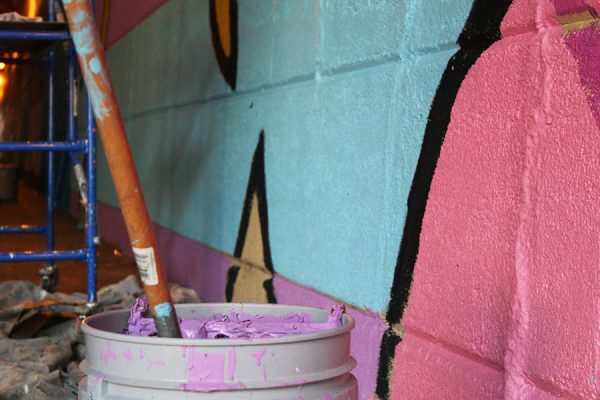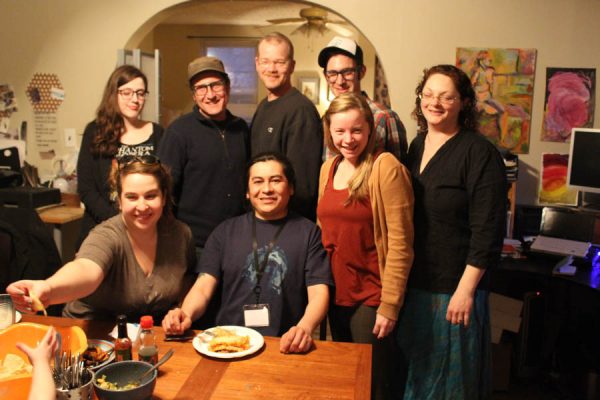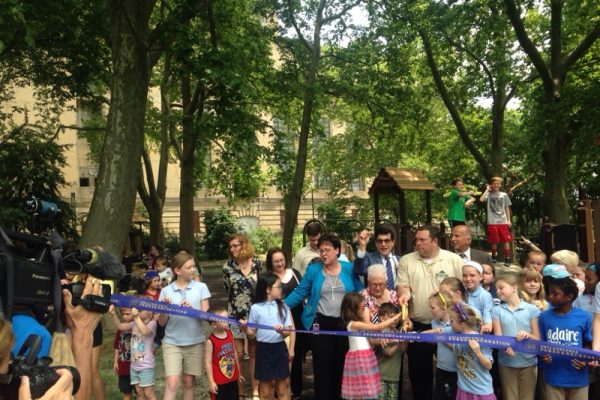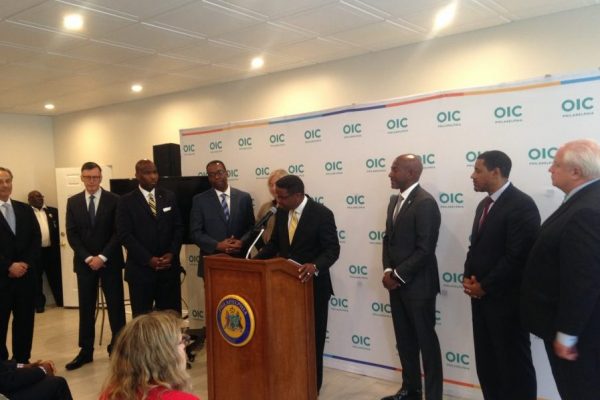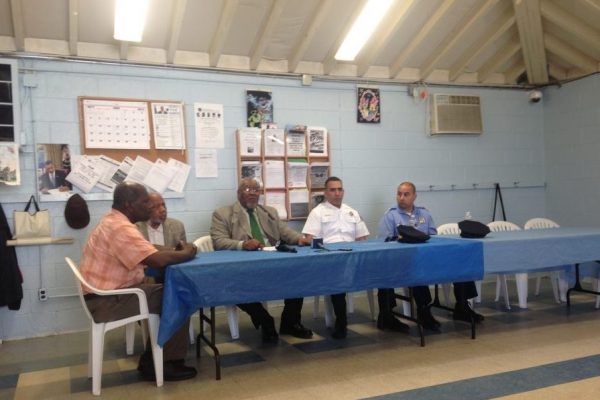The Son of Palestine: Local MMA Fighter Explains Life as a Palestinian Growing Up in Kensington
The conflict between Israel and Palestine has been going on for longer than many of us have been alive. To explain the conflict in simple terms, many Palestinians believe the Israelis are unjust occupiers of their homeland, while many Israelis view Palestinians as terrorists. There have been flashpoints of violence, as well as moments where peace almost seemed attainable, yet to this day the conflict continues.
The issue of Israeli settlements in disputed regions of the West Bank is once again making headlines and has drawn a response from the President. According to a recent New York Times article, the Israeli government approved construction of new settlements in the West Bank and East Jerusalem. Following Israel’s announcement, the White House issued a statement claiming these actions “may not be helpful in achieving” peace.
Even the United Nations issued a statement, saying that these settlements have “no legal validity, constituting a flagrant violation under international law and a major obstacle to the vision of two States living side by side in peace and security, within internationally recognized borders.”
International conflicts like these often lead to refugee crises and humanitarian issues. Since the late 60s, many Palestinian families have sought out Kensington as their new home. One Palestinian who came to Kensington went on to become one of the greatest American mixed martial artists of all time.
Rami Ibrahim is a master of mixed martial arts with a passion for Muay Thai, a form of kickboxing created in Thailand. He’s earned two nicknames, “The Arabian Nightmare” and “The Son of Palestine”, throughout his storied career. Ibrahim says that his life was shaped by his experiences in the Middle East and in America, especially Kensington.
The list of championships Ibrahim has won includes the Philadelphia Kickboxing Championship, the World Kickboxing Association’s (WKA) United States Muay Thai Championship, the United States Kickboxing Association’s (USKBA) International Muay Thai Championship, the Philadelphia All-Public Wrestling Championship, the Philadelphia Golden Glove Boxing Championship and the Philadelphia Diamond Belt Boxing Championship. In 2011, Ibrahim was ranked number one in the nation.
He currently runs Sitan Gym at Five Points in Northeast Philadelphia where he teaches kids mixed martial arts and discipline. Spirit News caught up with Ibrahim during one of his classes, where he shared what it was like to be Palestinian growing up in Kensington.
Before Ibrahim was winning championships and teaching kids, his family was living in the Middle East. He was born in Kuwait in 1982, but because his parents were both born in Palestine in 1942, Ibrahim was not considered a citizen of Kuwait. “I was born there,” Ibrahim said, “but because my parents were Palestinian, they won’t give me a Kuwaiti passport.”
According to Ibrahim, Palestinian children are vulnerable to being kidnapped and sold on the black market. He told us that he was kidnapped at the age of four in Kuwait. “I remember two men dressed in long white overgarments. I remember smiling at them and laughing. They just picked me up and started running,” Ibrahim said. “My mom came out screaming, but it was too late. They had me in this big factory. They put me in a back small room. Right before they were going to do the sale to sell me I remember my father and a couple of SWAT-looking men busted in. They ended up beating the people. Luckily if it wasn’t for my dad getting me that day, I would be gone.”
Ibrahim says he lived in Kuwait until about a week before the first Gulf War. After the Iraqi army invaded Kuwait, what was supposed to be a vacation to America for Ibrahim and two of his six brothers turned into a life-changing experience. “When the war started, things turned out to be really bad, so we had to start a new life here,” Ibrahim said. “Having lost everything, we had to start from scratch.”
Ibrahim was stuck in America while Saddam Hussein’s army invaded his homeland. Ibrahim’s father was able to leave Kuwait shortly after the invasion and was reunited with his family in the States.
According to Ibrahim, his father’s job at the airport allowed them to live comfortable lives in Kuwait, but moving to America made their lives drastically different. “My father went from dealing with the king and princes in Kuwait to [living] in a really bad neighborhood in North Philadelphia,” Ibrahim said.
Ibrahim says he had trouble adjusting to life in Kensington at first. “I was constantly getting into fights because I didn’t speak English very well,” Ibrahim said. “It was obvious that I wasn’t American.”
Ibrahim’s family decided to enroll him in a martial arts school to keep him off the streets and learn how to defend himself. “I started having better days and less problems because I was away from those kids,” Ibrahim said. “My problems were now only in school.”
As he learned to defend himself, Ibrahim became more confident and the schoolyard conflicts became less frequent. “My brother told me, ‘you have six months to learn how to defend yourself. After six months if anybody puts their hand on you, and you don’t break their hand, I’m gonna break your hand,’” he said. “I took him seriously.”
While he was fortunate to not have any conflicts during that six-month period, Ibrahim was eventually jumped by three neighborhood kids. Things didn’t end well for them. “Within a minute, they were all laid out on the floor,” Ibrahim recalled.
As Ibrahim continued his training, the kids in school and the neighborhood stopped picking on him. But as self-defense ended conflicts that Ibrahim encountered at school and on the streets, he says that his parents shielded him from the Palestinian-Israeli conflict that was still ongoing back in the Middle East. “I was oblivious to that stuff. In my mind, we were all one,” Ibrahim said.
As Ibrahim’s fighting career was starting to take off, he also began to question who he was and why there was conflict between Palestinians and Israelis. “The more I started fighting, the more I started seeing things that made me question who I am,” Ibrahim said. Once he started fighting and winning, he became aware of how he was perceived by Americans.
Ibrahim recalls one fight he had in the mid-1990s around the time of Israeli Prime Minister Yitzhak Rabin’s assassination. According to Ibrahim, he was fighting in a hotel, which was also hosting an Israeli event. It also just so happened that the person Ibrahim was set to fight was Jewish. Ibrahim won that fight, but says that many people in the audience were heated because it was still unclear whether or not it was an Islamic fundamentalist who had killed Rabin. In the end, the assassin was proven to be a radical conservative Israeli named Yigal Amir.
Ibrahim was somewhat unclear about why his fight was stirring people’s emotions. “[My Jewish opponent] was a nice kid,” Ibrahim said. “Me and him were cool with each other before and after, but the people [at the fight] got really mad. When that happened, that’s what lit a fire in me to want to know why they don’t like Palestinians.”
Ibrahim began researching the conflict in order to get a better understanding about both sides of the conflict. “When you research you find things that are biased and you find things that you have to find your own truth,” Ibrahim said. “There’s his side, your side and the true side.”
Ibrahim became more active in the Palestinian cause and began attending protests. A few of these demonstrations garnered the attention of the press. “In 2000, they took a picture of me and put it on the cover of the Daily News,” Ibrahim said. “I was shouting. I looked like I was an angry kid and I had the [Palestinian] flag on me. I forget the headline, but it wasn’t very good.”
This was all occurring during the Second Palestinian Intifada, which was the second Palestinian uprising against Israel and a period of intensified Israeli-Palestinian violence. The increased tension in the Middle East was seen around the world and Palestinian activists like Ibrahim were sometimes cast in a negative light.
Ibrahim believes his activism and that Daily News cover photo began to negatively affect his life. “It turned out to be really bad for me,” Ibrahim said. The photo was published during his senior year at Northeast High School. While Ibrahim’s status as captain of the wrestling team allowed him to foster positive relationships with many teachers at Northeast, including Jewish ones, he says he still faced some discrimination. One teacher in particular treated Ibrahim very differently. “He was pro-Israel and he had his mind made up,” Ibrahim said. “He didn’t like me.”
“I brought an orange [into school when I was cutting weight for wrestling] and I had a little kitchen knife [to peel it],” Ibrahim said. “[The teacher] saw me in the hallway cutting a piece of orange. He pulled me to the side and said, ‘What are you doing?’” Ibrahim says the teacher threatened to take the young wrestler to the police, so Ibrahim ran and hid in the library before being arrested by the school police. According to Ibrahim, that teacher fought to get him expelled from the Philadelphia School District.
Ibrahim says the principal and the wrestling coach fought to get him back into school. He was also fortunate that the judge who heard his case was involved with martial arts, knew Ibrahim, and knew the type of kid he was. Ibrahim was allowed to re-enter the school under the condition that he write a letter of apology to his parents.
Ibrahim’s career as a fighter really began to take off after high school. He was winning fights and soon found himself fighting for a United States Championship. That championship fight took place after September 11, 2001. Ibrahim says that during that fight, some in the audience made personal remarks to him about his ethnicity.
“The place was so loud. When I walked into the ring, [people in the audience] kept screaming, ‘Go back to Iraq,’” Ibrahim said. “I’m not even from Iraq. I don’t know nothing about Iraq. I have no family from Iraq. That’s like me telling you to go back to China.”
Ibrahim added: “[Iraq] made me lose my house. My family lost their wealth. Do you know how hurtful that was? I wasn’t angry. I was sad, I was hurt.”
Around this same time, Ibrahim was trying to become an American citizen. “My two older brothers and I were supposed to get our citizenships,” Ibrahim said. “All we had to do was go to the Naturalization Oath Ceremony, that was all we had to do.”
According to Ibrahim, his Naturalization Oath was supposed to be on a Thursday, but he received a letter a few days beforehand from Homeland Security. “Homeland Security sent me a handwritten letter telling me that my citizenship would be declined until they did more investigating,” Ibrahim said.
Ibrahim says his other two brothers were granted their citizenship and that he was the only one in his family of eight people who Homeland Security denied citizenship to. Ibrahim went on to fight the ruling in court. Ibrahim says his father hired a lawyer to look into how his citizenship application could be denied. “[The lawyer] invited my dad into his office and threw a file at him,” Ibrahim said. According to Ibrahim, the file contained pictures of him at protests, things he had written online and other evidence pointing to a larger investigation by Homeland Security.
“As soon as [my father] got back home, he took these shorts I had just gotten, my fighting shorts with the Palestinian flag on them. He took them and he burned them,” Ibrahim said. “He told me, ‘You’re never going to wear anything with Palestine on them. You’re never gonna talk about Palestine. You’re never gonna say you’re Arab, Muslim or anything.’” Ibrahim didn’t understand why his father was so upset since they were living in a section of Kensington with a large Palestinian population. However, Ibrahim reluctantly agreed with his father.
While he agreed to tone down his pro-Palestine image, Ibrahim was confused about why he was being viewed as anything other than a person who wanted to be a positive part of American society. “In my opinion, I’ve been fighting in this country, representing this country,” Ibrahim said. “I’ve been an American champion longer than any other American champion. This is a fact. I’ve defended my American title more than any other American fighter, so why am I being attacked?”
Ibrahim says he felt pressure from most of his family to stop fighting, but he believes his skills as a champion fighter were given to him by a higher power. “I feel like God gave me a position to be a fighter and put me in the public eye. Since I am in the public eye, I want to do good with it and bring awareness to my people,” Ibrahim said. “For me, it’s right versus wrong.”
Ibrahim says when he first came to Kensington, he was one of the only Palestinians in the neighborhood. He says it took a while for the Palestinian community to feel safe in Philadelphia and now wonders what’s next for Muslims in America. “I feel like we’re beginning to go back to where we started,” Ibrahim said.
Ibrahim believes there are people out there who feel animosity toward people of Arab descent, specifically pointing to the incident when a pig’s head was thrown onto the steps of the Al-Aqsa Mosque on Germantown Avenue last year. While he believes things will get much worse before they get better, Ibrahim tries to teach people to look beneath the surface and research whatever it is you are passionate about.
For Ibrahim, life must be approached in the same way a fighter approaches an opponent. “I look at life the way I look at fighting in the ring. If you go into a conflict you’ve got to take it like a fighter takes a fight in the ring,” Ibrahim said. “A smart fighter, when he has a fight, researches his opponent. That type of mentality, you need to take with the Palestinian-Israeli conflict. Find out about us. Do your research, and get to know us and then make your judgement.”
Despite warnings from his family, Ibrahim continues to be vocal about the conflict and speak his mind. “If we don’t stand up and talk about what’s going on, then we’re okay with what’s going on.” That doesn’t just go for non-Muslims — he believes ISIS is an enemy of America and for him not to condemn the terrorist group would only make his opponents here stronger. “I don’t believe these are true Muslims,” Ibrahim said. “Who is victimized most by ISIS? Other Muslim people. When we as Americans don’t stand up for Palestinians, or any other people that are oppressed, then we are okay with it.”
Ibrahim eventually received his citizenship in December 2008, a full 18 years after he moved to America. Ibrahim’s parents forbade him from visiting Palestine even though they were both born there. Getting his citizenship gave him a chance for him to finally see his homeland without fear of not being able to return to America. “The moment that I got my passport, that same week, I booked a flight to Palestine to finally be able to go visit that land that I had been protesting and speaking for.”
After seeing the destruction caused by the Palestinian-Israeli conflict firsthand, Ibrahim is grateful that he was able to escape the violence and live in America. For Ibrahim, everyone should accept that we all have common ancestry and be respectful to each other as if we were family. “We all come back to Abraham. In reality, all of us — Jews, Christians, Muslims, Buddhists, atheists —we all come back to the one Adam, the first human being. We’re all related, we all have the same blood, we all have the same race and that race is humanity.” •

